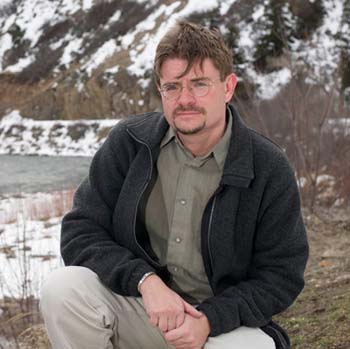
![]() In the evening a strange thing happened; the 20 families became one family, the children were the children of all. The loss of a home became one loss, and the golden time in the West was one dream.
In the evening a strange thing happened; the 20 families became one family, the children were the children of all. The loss of a home became one loss, and the golden time in the West was one dream.
— John Steinbeck, The Grapes of Wrath
Long before Tom Joad and his family set out for California in John Steinbeck’s The Grapes of Wrath, the West was a cradle of hope and tragedy for migrants seeking a new life in a strange land. It’s still that way today. For many like the Joads, the West remains a place to re-invent themselves. Unfortunately, many discover a world that’s even harder than the one they left behind.
Seventy years have passed since John Steinbeck described the odyssey of the Joads — a family driving a Dodge jalopy filled with the salvage of their repossessed homes out of the Dust Bowl, fueled by California dreams of trees heavy with fruit and a little white house in an orchard somewhere.
On the book’s 70th anniversary this April, the nation finds itself in the worst economic crisis since the Great Depression of the 1930s. Recalling the Joads’ grueling experiences can remind us of how much less grim this latest recession has been, at least so far. We haven’t descended into vast cross-country migrations. We haven’t seen the food riots or soaring unemployment of the Great Depression.
The rural West has changed in many ways since Steinbeck’s day. Nowadays, tractors are nostalgic American icons, but for Steinbeck, they were “snub-nosed monsters, raising the dust and sticking their snouts into it, straight down the country, across the country, through fences, through dooryards, in and out of gullies in straight lines.”
Today, industrialization has nearly done away with the family farm. Towns like those along the Rockies’ Eastern Plains look nearly as empty as the ones fled by the migrating Okies.
But the Joads haven’t disappeared from the highways. They just have darker complexions and a different language. The people who flock to the fruit orchards, driven by rumors of good work for good wages, are mostly immigrants now. They cross the Mexican border on journeys that make the Joads’ cross-country adventure seem tame. Sometimes they find good work and good wages. But often, they find life in the fields, kitchens and hotels no easier than the lives they left behind.
They may find themselves in places not unlike the Hoovervilles of the Depression, and they still encounter the kind of hatred the Joads did. Back then, it was angry men with ax handles, who showed up at night to burn down illegal camps while sheriff’s deputies looked the other way. These days, it’s self-described “minutemen” with guns and lounge chairs set up on the border.
then, the migrants traveled on Route 66. The highway later became famous as a place to get your kicks, and now it has morphed into a nostalgic road trip into bygone Americana. When Steinbeck called it the “mother road,” though, it was a different sort of highway — the road out of the Dust Bowl.
Route 66, he wrote, is the path of a people in flight, refugees from dust and shrinking land, from the thunder of tractors and shrinking ownership, from the desert’s slow northward invasion, from the twisting winds that howl up out of Texas, from the floods that bring no richness to the land and steal what little richness is there. From all of these the people are in flight, and they come into 66 from the tributary side roads, from the wagon tracks and the rutted country roads. 66 is the mother road, the road of flight.
It doesn’t take much rewriting to make those words fit today’s migrants, even though the landscape has changed. Much of the rugged West the Joads crossed has been tamed with highways and subdivisions, while the mother road has been replaced by interstates. Yet the Joads’ contemporary counterparts still follow highways of hope, and they still meet fear from some strangers, indifference from employers and find comfort among their own.
When Studs Terkel, that chronicler of the common man, wrote about The Grapes of Wrath for its 50th anniversary edition, he titled his piece “We Still See Their Faces.”
That’s true, 20 years later. The Joads are still with us, taking what belongings they can carry as they travel through deserts and over mountains into that golden time in the West.
David Frey is a contributor to Writers on the Range, a service of High Country News (hcn.org). He is a freelance writer in Glenwood Springs, Colorado.


